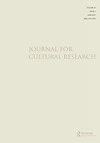阴谋论认知:混乱、便利和令人担忧
IF 0.6
Q1 CULTURAL STUDIES
引用次数: 16
摘要
摘要公众话语中大量的错误信息一直备受关注。尽管错误信息一直在政治辩论中发挥着作用,但其特征已经从支持特定立场转变为错误信息和阴谋论的“震惊和混乱”流。接触阴谋论会对社会产生相当大的不利影响。因此,我认为学者们有责任打击阴谋论和错误信息。履行这一职责需要理解阴谋论的各种修辞作用。在这里,我关注的是人们拒绝明确的科学证据,并基于意识形态要求援引阴谋论或激进的反体制立场的例子。我认为,这些立场并不总是反映真实的态度。相反,人们可能会使用极端的修辞作为政治表达的务实工具。我通过关注阴谋论在拒绝科学中的作用来研究这种可能性。阴谋论的认知和修辞违反了支撑科学的认知标准。具有讽刺意味的是,这种对认识标准的违反使阴谋论成为一种合理部署的工具,为政治目的服务。我提出的一项研究证实,阴谋论可以用来支持基于世界观的科学否认。我建议学者们如何揭穿或诋毁阴谋论。本文章由计算机程序翻译,如有差异,请以英文原文为准。
Conspiracist cognition: chaos, convenience, and cause for concern
ABSTRACT There has been much concern with the abundance of misinformation in public discourse. Although misinformation has always played a role in political debate, its character has shifted from support for a specific position to a ‘shock and chaos’ stream of misinformation and conspiracy theories. Exposure to conspiracy theories can have considerable adverse impact on society. I argue that scholars therefore have a responsibility to combat conspiracy theories and misinformation generally. Exercising this responsibility requires an understanding of the varied rhetorical roles of conspiracy theories. Here I focus on instances in which people reject unequivocal scientific evidence and invoke conspiracy theories, or radical anti-institutional positions, based on ideological imperatives. I argue that those positions do not always reflect true attitudes. Instead, people may deploy extreme rhetoric as a pragmatic tool of political expression. I investigate this possibility by focusing on the role of conspiracy theories in the rejection of science. Conspiracist cognition and rhetoric violate the epistemic standards that underpin science. Ironically, this violation of epistemic standards renders conspiracy theories useful as a rationally deployed tool that serves political purposes. I present a study that confirms that conspiracy theories can be deployed to support worldview-motivated denial of science. I provide suggestions how scholars can debunk or defang conspiratorial rhetoric.
求助全文
通过发布文献求助,成功后即可免费获取论文全文。
去求助
来源期刊

Journal for Cultural Research
CULTURAL STUDIES-
CiteScore
1.40
自引率
0.00%
发文量
23
期刊介绍:
JouJournal for Cultural Research is an international journal, based in Lancaster University"s Institute for Cultural Research. It is interested in essays concerned with the conjuncture between culture and the many domains and practices in relation to which it is usually defined, including, for example, media, politics, technology, economics, society, art and the sacred. Culture is no longer, if it ever was, singular. It denotes a shifting multiplicity of signifying practices and value systems that provide a potentially infinite resource of academic critique, investigation and ethnographic or market research into cultural difference, cultural autonomy, cultural emancipation and the cultural aspects of power.
 求助内容:
求助内容: 应助结果提醒方式:
应助结果提醒方式:


